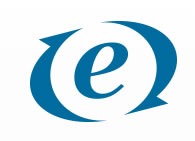It's not often that I write about the tools that we use. To some, the technical details are not interesting, but many clients of ours do query what tools we use - and ask us to justify why we use them.
I would encourage every company employing a digital agency to question and query. The iceberg principle definitely applies to most digital work where only 10% of the work is visible to the end user. Sometimes the underlying structure of the work takes on less importance - an example would be the underlying code base for microsites or campaign sites that only live for a short amount of time.
Marketing in general, however, is very much heading towards creating "things of value". Why invest hundreds of thousands of rands into work that has a finite lifespan and is often more gimmicky than anything else? Why not build something that will last and will continue to deliver value to your consumers? Examples would be websites, tools, wizards, useful functionality and apps.

So back to the purpose of this blog post. One of the primary tools we rely on when developing digital products is Expression Engine. Expression Engine and Lima Bean have a long history together (over five years) and at this point in time, we are recognised as one of the premier Expression Engine developers in South Africa (our portfolio attests to this). We discovered Expression Engine after trying almost every other CMS available at that time (all the usual suspects), but found them all wanting. Their code was ugly and bloated and often one was forced into modifying existing code, as opposed to being able to develop from scratch. Our workflow to this day is that we want to start each new piece of work with a blank slate, not being constrained by "themes" or functionality that may or may not be available in the CMS. Our designers need to think about users, UX and design only - not technology. The technology should be flexible enough not to impose constraints.
Expression Engine, to this day, is one of the few CMSs that give you this blank canvas, yet a full set of tools to execute quickly and rapidly. The flexibility is unmatched and the code base is extremely extendible. It also allows us to use other third party frameworks that we consider to be best of breed (an example being the Foundation responsive framework).
At this point, we have also never had an Expression Engine site hacked, even if it is not kept up to date. I'm not sure that many Word Press developers can claim the same. In case you need more convincing, Ellis Lab has done a good job of selling their product.
I will, however, be the first to admit that while we have our Expression Engine workflow very much nailed down at this stage, it did take a bit of time and we did end up paying school fees for a number of years. Those days are over though, so if you are interested in the iceberg - and want to make sure that your digital product is also shiny and beautiful under the hood - give us a call.